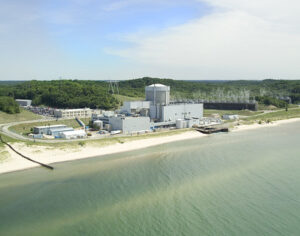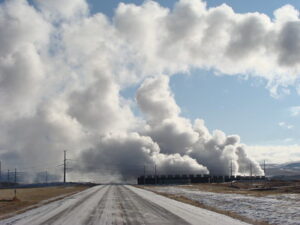A couple of weeks ago, Michigan celebrated “Michigan Careers in Clean Energy Week,” a week-long event to highlight the growth in Michigan’s clean energy jobs. Right now, Michigan has about 118,000 jobs that are directly related to the clean energy sector, and analysts expect to seen employers add an additional 9,000 jobs in the next six years.
Michigan’s ability to transition to a clean energy platform rides on the availability of trained workers. The legislature is moving forward with its plan to require an end to energy production that returns carbon to the atmosphere. Yesterday, the Michigan House passed the clean energy legislation that requires Michigan utility companies to generate only “clean” energy by 2040. The Michigan Senate passed the same package last week. Governor Whitmer has already indicated that she will sign the measure.
That puts the state on a non-negotiable timer to transition to renewable energy. Under the measure, energy providers will need to have a production portfolio that consists of at least 60% renewable and clean energy sources like wind and solar. The other 40% can come from other sources like nuclear energy and natural gas that uses carbon capture and storage technology.
Spending about a week in Michigan will tell you that the state does not typically receive enough sun to make solar energy viable as a reliable energy source. Additionally, solar panels can produce 40%-60% less energy in the winter than they can in the summer, largely because their exposure to the sun is reduced by both the angle of the sun and winter precipitation.
Clearly, the more reliable source of renewable energy for Michigan will be wind energy. In fact, the state ranks 15th among all states in terms of wind energy production.
Clean energy jobs present a community college opportunity
In fact, it is very clear that Michigan needs more renewable energy workers, particularly in wind energy production. This is an incredible opportunity for community colleges to develop alternative energy training programs. The clean energy mandate means that Michigan not only needs to expand its energy workforce, but also needs to maintain this workforce for the foreseeable future.
Better, these jobs are high-wage, high demand jobs, which will enable workers to live a middle-class lifestyle. Consumers Power intends to mothball its last coal burning electricity plant by 2025. DTE is also winding down operations at its last remaining coal plants.
This opportunity is right here, right now. Is Washtenaw Community College prepared to take advantage of it?
Photo credit: Gene Han, via Flickr













